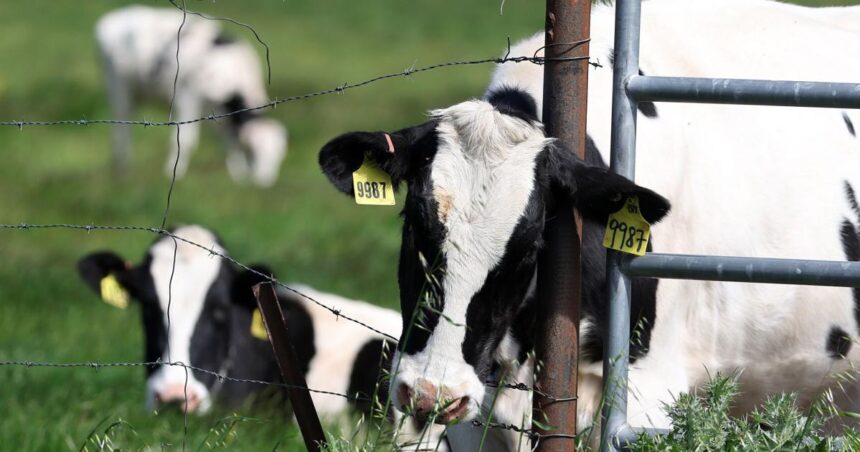Public health officials are concerned about bird flu, which has been detected in three dairy farmworkers – two in Michigan and one in Texas – as well as in cattle in a dozen states.
The farmworkers’ symptoms were mild, and researchers have not found evidence of person-to-person transmission of the H5N1 virus, also known as bird flu. While the risk to the general public is low, the potential for the virus to mutate and become more infectious is a concern.
Meghan Davis, an epidemiologist and microbiologist at Johns Hopkins University, highlighted the high-consequence nature of the pathogen, leading public health authorities to remain vigilant.
State officials are focused on testing and surveillance of dairy workers, facing significant challenges in the process.
People are also reading…
Cows graze in a field at a dairy farm on April 26 in Petaluma, California. Federal officials have advised dairy farms to monitor for bird flu in cattle and humans, but testing remains largely voluntary.
The U.S. Department of Agriculture states that H5N1 is deadly to domestic poultry but milder in cows. The poultry industry has responded aggressively by culling infected flocks, while the response on dairy farms has been less intense.
The CDC and USDA recommend monitoring for the virus in cattle and humans on dairy farms, but testing remains voluntary, except for herds crossing state lines.
FDA testing shows half of all raw milk samples from four U.S. states tested positive for bird flu.




